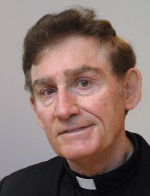When we speak of serving the poor, we usually envision collecting donations, creating parish food pantries, gathering clothing, providing housing and contributing a variety of services to those in need.
Assuring that the poor have sufficient food, clothing and a roof are excellent material means for enabling them to live more wholesome, dignified lives. However, in the apostolic exhortation “The Joy of the Gospel,” Pope Francis further focuses on essential psychological needs. His unique insight not only creates a broader understanding of the poor, but also contains a successful means for countering crime, family divisions and insufficient work.
He writes that in our time “masses of people find themselves excluded and marginalized: without work, without possibilities, without the means to escape. Human beings are themselves considered consumer goods to be used and then discarded. … It is no longer simply about exploitation and oppression, but something new.
[hotblock]
“Exclusion ultimately has to do with what it means to be a part of the society in which we live; those excluded are no longer society’s underside or its fringes or its disenfranchised — they are no longer even a part of it. The excluded are not the ‘exploited’ but the outcast, the ‘leftover.'”
And who are the outcasts? They are the forgotten. They live in places most people avoid. They come from a family lacking parents or can be a released prisoner with nowhere to go and no one to see. They are the refugees with no country to which to return to and no country wanting them or welcoming them.
The excluded are not just “out there,” they also exist in our homes where a husband or wife may act, as they say, “like passing ships in the night,” or where children feel no connection with their parents or relatives, sometimes, not even with their siblings. They are also in the workplace where they feel excluded by co-workers.
Being excluded translates into not counting, being rejected, ignored and disregarded. To be human is to be something and to be part of something. Whenever this is missing, there is the feeling of being nothing, which often fosters bizarre behavior and misconduct.
This message of Pope Francis’ causes us to wonder what would happen if the excluded poor were made to feel recognized as a person, regarded as a human being and made to believe in his or her worth. The practice of inclusion possesses an awesome power that can change a person who is in exile into a welcomed neighbor, an outcast into a treasured gift and someone with poor self-image into a proud human being.
PREVIOUS: Strive to become an agent of good in the world
NEXT: How can parents meet the challenge of keeping Christ in Christmas?




Share this story